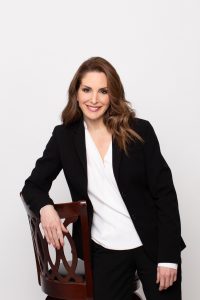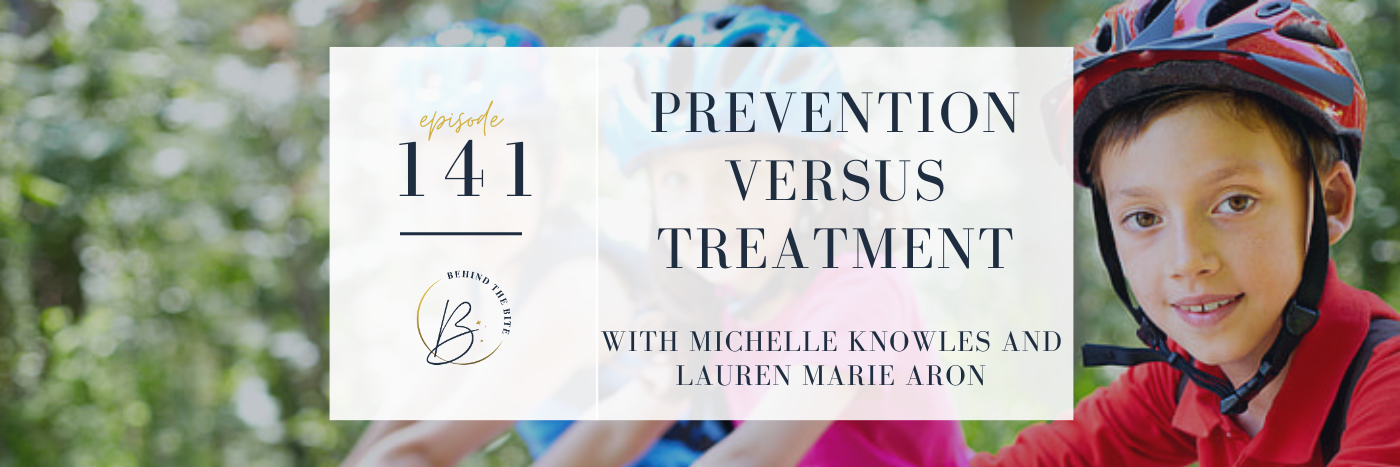MEET LAUREN MARIE ARON AND MICHELLE KNOWLES

The Hope Space, founded by Lauren Marie Aron, is a compassionate endeavor driven by her deep-rooted commitment to treating individuals with disordered eating. Lauren's passion and care led her to establish a company that embodies these values.
Michelle Knowles is the Senior Occupational Therapist and Creative Director at The Hope Space. She is devoted to accompanying her clients on their path toward achieving healing and embracing a state of holistic wellness. Originally from sunny South Africa, she is a passionate Occupational Therapist dedicated to supporting her clients in reaching their full potential in life.
Visit The Hope Space and connect on Facebook, Instagram, TikTok, and LinkedIn.IN THIS PODCAST
- Inform yourself of the current statistics
- Making change within a big system
- Moderation over restriction
- Adding curriculums to schools
Inform yourself of the current statistics
Essentially the prevalence of eating disorders is [now] mostly seen from the age of 10 and shoots up around the age of 17 to 19. Those are where your key hospital admissions are. (Michelle Knowles)Eating disorders can develop for a person at any stage of their life. However, it is important to know what the current trends are so that if you have people of these ages in your life, like family or children, you can be aware of what and who is most at risk.
We need to be questioning what’s happening at those ages and what we can try to do to help [them] at an earlier age. (Michelle Knowles)It is concerning that people at such young ages are having body concerns around food when they should be focused on playing, learning, and developing.
Making change within a big system
Eating disorders are somewhat subtly encouraged by mainstream social media, marketing, and the beauty industry. It can feel incredibly difficult to go against such a huge system that has been designed to make you doubt yourself and want to change yourself by using products or diets. To make small, positive but powerful changes in your life and the lives of others within such a big system is to develop and nurture good habits because your habits impact your brain, and ultimately, how you respond to the world around you. Create a full, healthy, sustainable life that you really enjoy living.[Add] value to your life because if you fill your life with a bit more value and quality of life then food and body become less of a focus. (Lauren Marie Aron)
Moderation over restriction
There is no such thing as “good” or “bad” food. If someone is trying to tell you that there is then it’s probably a marketing stint and they want you to buy one of their products. Everything in moderation, and with intention, awareness, and self-compassion. Cutting out whole food groups is not sustainable or healthy, and it sends the wrong message to younger children and teenagers.Adding curriculums to schools
To aid prevention efforts, classes can be added to schools so that teenagers and older children can learn about these important aspects without the influence of their friends who might have been taught the wrong thing. Unrealistic standards should be identified and broken down in front of younger children so that they can understand what is real and what is created for marketing or film, etc.What I used to do was bring a group of young people in and go through their Instagram [accounts with them] … also what they are posting … opening dialogue around that, and that was often so powerful. (Lauren Marie Aron)Young people like to follow trends because they are still developing their own sense of self, and many trends involve actresses, models, and famous people that also buy into and support the diet industry. Unless encouraged, not many young people may actively pursue other leading role models to learn from since they want to do what their friends do. Furthermore, students could have open and interesting discussions about how a person even defines beauty – because the concept alone can shift in many different directions.
So if there’s a way for us to have healthy conversations in a safe space at a younger age so that this is not impacting them as much, that’s a win. (Michelle Knowles)
USEFUL LINKS
- Visit The Hope Space and connect on Facebook, Instagram, TikTok, and LinkedIn.
- RAISING KIDS WITHOUT DIET CULTURE WITH GRACE WILLIS | EP 140
- Visit speakpipe.com/behindthebite and submit your comment via voice message!
- Sign up for the free Behind The Bite Course
- Practice of the Practice Network
- Email Dr. Cristina Castagnini: info@behindthebitepodcast.com
MEET DR. CRISTINA CASTAGNINI
 I am a licensed Psychologist and Certified Eating Disorder Specialist.
While I may have over 20 years of clinical experience, what I also have is the experience of having been a patient who had an eating disorder as well.
One thing that I never had during all of my treatment was someone who could look me in the eye and honestly say to me "Hey, I've been there. I understand".
Going through treatment for an eating disorder is one of the hardest and scariest things to do. I remember being asked to do things that scared me. Things I now know ultimately helped me to get better. But, at the time, I had serious doubts and fears about it.
If even one of my providers had been able to tell me "I know it's scary, but I had to go through that part too. Here's what will probably happen...." then perhaps I would not have gone in and out of treatment so many times.
My own experience ultimately led me to specialize in treating eating disorders. I wanted to be the therapist I never had; the one who "got it".
I will be giving you my perspective and information as an expert and clinician who has been treating patients for over 2 decades.
But don't just take my word for it...keep listening to hear the truly informative insights and knowledge guest experts have to share.
I am so happy you are here!
I am a licensed Psychologist and Certified Eating Disorder Specialist.
While I may have over 20 years of clinical experience, what I also have is the experience of having been a patient who had an eating disorder as well.
One thing that I never had during all of my treatment was someone who could look me in the eye and honestly say to me "Hey, I've been there. I understand".
Going through treatment for an eating disorder is one of the hardest and scariest things to do. I remember being asked to do things that scared me. Things I now know ultimately helped me to get better. But, at the time, I had serious doubts and fears about it.
If even one of my providers had been able to tell me "I know it's scary, but I had to go through that part too. Here's what will probably happen...." then perhaps I would not have gone in and out of treatment so many times.
My own experience ultimately led me to specialize in treating eating disorders. I wanted to be the therapist I never had; the one who "got it".
I will be giving you my perspective and information as an expert and clinician who has been treating patients for over 2 decades.
But don't just take my word for it...keep listening to hear the truly informative insights and knowledge guest experts have to share.
I am so happy you are here!


Comments